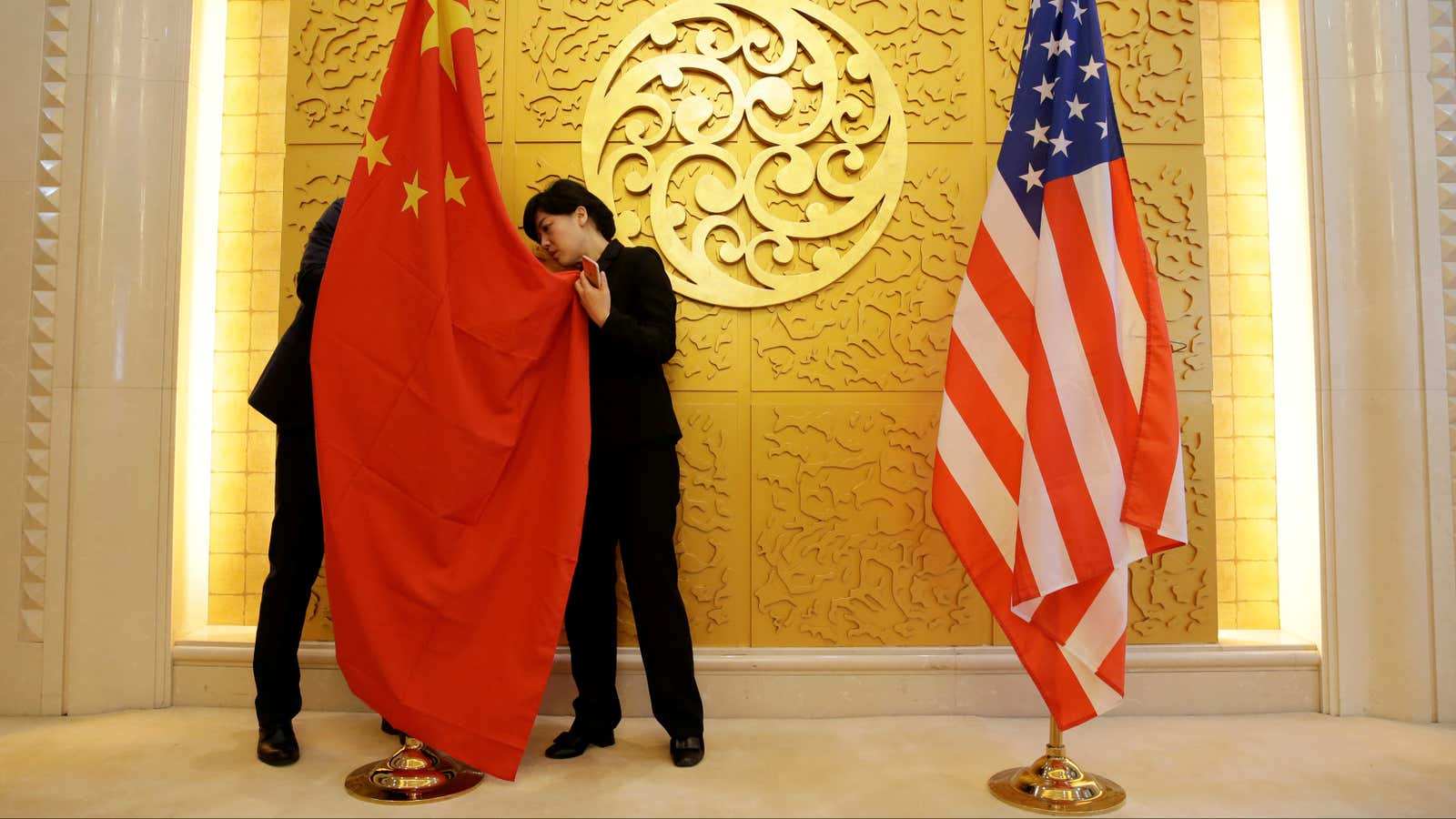After a relatively tranquil month in US-China relations, the two nations are going tit for tat with tariff threats once again.
On Friday (June 15), China announced tariffs on $34 billion of US goods in retaliation against the US’s barriers on $50 billion of Chinese goods. Then, late Monday (June 18), the Trump administration threatened to impose tariffs on an additional $200 billion worth of Chinese imports.
China can’t match Trump’s latest threat, simply because it doesn’t actually import $200 billion worth of US goods. (In 2017, China imported $130.4 billion in US goods, according to US data, though China’s customs agency puts the figure at $154.8 billion.) But the Chinese government has pledged to “issue strong countermeasures” (link in Chinese). And there’s one possible countermeasure that could make China come out on top.
Some of China’s potential retaliative moves include snarling imported US goods in customs inspections, upping penalties for US companies operating in China and delaying their licensing approvals, and limiting US-bound tourism. These actions have worked well in China’s past kerfuffles with South Korea and Japan, says Trivium China, a Beijing-based research firm.
But China has a much “stronger countermeasure” at its disposal when it comes to the US, notes Dean Baker, an economist at the Center for Economic and Policy Research. Namely, it could stop honoring US intellectual property rights.
“This would be hugely costly to US corporations, especially if they began to export items, like prescription drugs, to the rest of the world,” writes Baker. “This would likely violate WTO rules, but I suspect China will care about violating WTO rules as much as Trump does.” That is, not much.
To be clear, China probably won’t resort to such a move. Xi Jinping, the head of the Chinese Communist Party, seems intent on widening, rather than overturning, the existing global economic order—and, for better or worse, protection of patents and copyrights is an essential part of that structure. Plus, ignoring US copyrights might be self-defeating, given that the government has invested heavily in securing patents as part of its innovation strategy.
But simply musing on the possibility sheds some useful insight into the US-China trade dynamic. For one, while the Trump administration condemns Chinese trade barriers in high-technology sectors, US-headquartered corporations also profit from protectionism. Patents on things like software and pharmaceuticals are effectively monopolies enforced by governments that prevent competition—allowing companies to charge consumers as much as they want.
And so while China subverting US copyright law would be catastrophic for shareholders of companies like Apple, Pfizer, and Microsoft, it would “mean massive savings on drugs and other items for billions of people,” as Baker explains.
That goes for Americans too. Consider that only about half of US households hold any stocks at all. And they spend vastly more on prescription drugs than residents of other developed countries. In other words, if China were to go for the nuclear option in the trade war, it might paradoxically fulfill Trump’s big promise to middle-class Americans—to rejigger the economy so that they actually start winning again.
